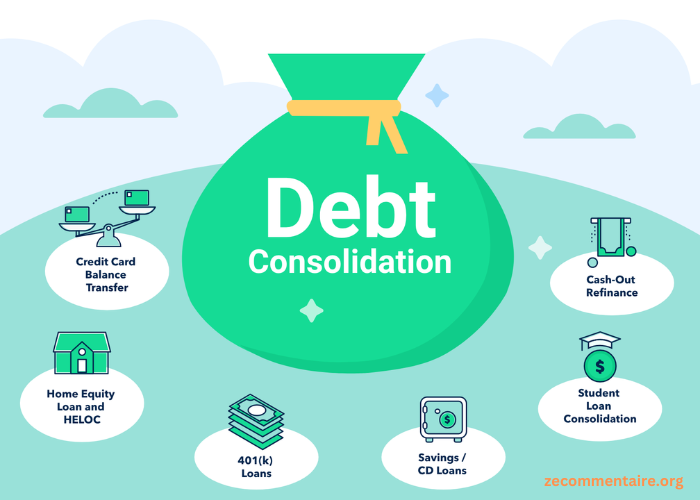Managing multiple obligations in the complex realm of personal finance can prove monumental and economically depleting. Debt consolidation is one solution that has garnered popularity due to its capacity to simplify this circumstance. By consolidating several debts into a single loan, this approach often results in more advantageous repayment conditions, such as a decreased monthly payment or a lower interest rate. Understanding how debt consolidation loans work and determining who benefits most from them can be pivotal for anyone looking to regain control of their financial health.
What is Debt Consolidation?
A new loan is obtained to consolidate multiple obligations, most commonly for unsecured debts like credit card balances or high-interest personal loans. This latest financing often comes with more favourable terms to the borrower, such as a lower interest rate or extended repayment period, which can reduce the borrower’s monthly financial burden. The primary appeal of this approach is the convenience of servicing only one debt instead of multiple debts, each with its due date, interest rate, and balance.
How do They work?
Loan consolidation can simplify financial management in several ways. One is that it can consolidate many loans into one smaller loan with a lower interest rate and more manageable monthly payments. Essentially, this type of loan works by paying off existing debts—such as credit card balances, personal loans, and other high-interest liabilities—using the funds from the new loan. The borrower then has only one creditor to deal with, replacing multiple monthly payment deadlines with just one.
The mental and financial toll of carrying numerous loans can be lessened, and you can save a ton of money on interest payments. For many, the streamlined payment process and potential for lower rates make debt consolidation an attractive option for regaining control over their financial health. Moreover, these loans often come with fixed interest rates, which predict monthly budgeting, unlike variable-rate debts, which can fluctuate and increase repayment amounts.
Benefits of Consolidating Your Debts
Streamlined Budget Management
By consolidating multiple debt payments into one, you simplify your financial management. This consolidation makes budgeting more accessible because you only need to account for one fixed payment amount every month instead of keeping track of multiple fluctuating debts. This predictability helps you plan other aspects of your finances more effectively.
Reduced Stress and Financial Clarity
The psychological benefits of debt consolidation are often overlooked. Financial fatigue may result from the overwhelming and stressful nature of multiple obligations. Consolidation helps reduce this stress by offering a more straightforward path to becoming debt-free.
Potential for Better Loan Terms
Besides generally lower interest rates, consolidation advances often have more favourable repayment terms. These can include more flexible payment schedules or the option to renegotiate terms depending on your financial stability. This flexibility can provide much-needed breathing room for those looking to manage their finances more comfortably.
Avoidance of Delinquencies
Having multiple debt obligations increases the risk of overlooking a payment deadline, which can lead to delinquencies. Each delinquency can negatively impact your credit score. Consolidating your debts into one payment significantly reduces the likelihood of mishaps, as you only need to remember one due date.
Debt consolidation loans help you pay off your debt faster and more strategically. A debt consolidation loan can help debtors get out of their mounting debt by combining all their existing loans into one, potentially with a reduced rate and more manageable monthly payments. However, it’s crucial to understand that this financial strategy requires careful consideration of one’s economic situation, the terms available, and the potential long-term impacts. With the right approach, these loans can significantly benefit those looking to streamline their payments and reduce the overall cost of their debts.






